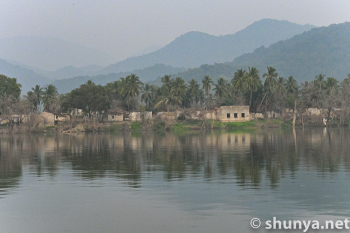Usha Alexander in Shunya’s Notes:
 Given India’s long coastline and its total reliance on predictable patterns of rainfall and steady rates of snow-replenished, glacial meltwater to feed its people, the mounting threats of climate change are real and urgent. It behoves us, as a nation, to take aggressive action to mitigate these threats by reducing our use of coal, oil and gas, by preserving and expanding mature forests. But, given that we demand more electricity and gasoline to power our increasingly urban, consumerist lives while pursuing a model of development based on pulling more people into energy-intensive lifestyles, the central government has declared its intention to more than double energy generation capacity by 2030, mostly by rapidly expanding low-carbon energy sources. As a low-emissions, renewable resource, the Polavaram dam might be regarded as an example of “green” energy, never mind its immense ecological and human costs.
Given India’s long coastline and its total reliance on predictable patterns of rainfall and steady rates of snow-replenished, glacial meltwater to feed its people, the mounting threats of climate change are real and urgent. It behoves us, as a nation, to take aggressive action to mitigate these threats by reducing our use of coal, oil and gas, by preserving and expanding mature forests. But, given that we demand more electricity and gasoline to power our increasingly urban, consumerist lives while pursuing a model of development based on pulling more people into energy-intensive lifestyles, the central government has declared its intention to more than double energy generation capacity by 2030, mostly by rapidly expanding low-carbon energy sources. As a low-emissions, renewable resource, the Polavaram dam might be regarded as an example of “green” energy, never mind its immense ecological and human costs.
But, to get a real handle on our predicament, we cannot ignore these costs. We must reckon with the underlying reality that our mounting harms to natural systems have thrust us into a condition of ecological overshoot. This means we are depleting essential resources—perhaps most alarmingly, healthy soils—by annihilating living systems, extracting resources and producing pollution at a rate faster than planetary systems can replenish themselves, faster than natural geochemical cycles can restabilise themselves or the beleaguered biosphere can regain its integrity.
More here.
